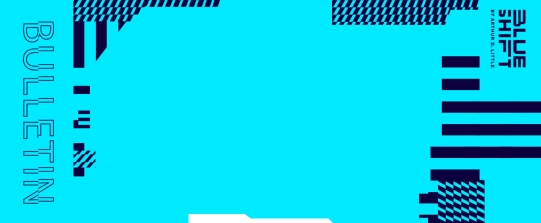
The applications for generative artificial intelligence (AI) keep on coming. In the first of a series of Blue Shift Bulletins, in which we share some thoughts based on interviews with industry and academic experts, we take a look at the disruptive benefits of AI for the hospitality industry, one of the less-talked-about industries so far in the great AI debate. Our first interview was with Alix Boulnois, Chief Digital Officer (CDO) and executive committee member of the global hotel group, Accor.
Here at Arthur D. Little’s (ADL’s) Blue Shift, we are interested in understanding how generative AI will impact society and the economy beyond the more typical use cases. So we decided to take a quick look at its application in the hospitality industry, a sector perhaps less often mentioned than others.
We had the great pleasure of discussing this with Alix Boulnois, CDO at Accor. After eight years at Amazon, Alix joined the Accor hospitality group in 2020. Alix is an expert in major transformations in a technological and digital context. She brilliantly led two transformations at Amazon, and today continues her innovative efforts at Accor. As CDO, Alix manages Accor’s Digital & Business Factory, which has a particularly broad scope, bringing together all the group’s digital and data teams — including e-commerce, guest loyalty, and distribution — across all 110 countries and 40 brands.
In addition to the hospitality industry, we also talked about another broader concern that Alix raised during our conversation: whether generative AI would lead us toward a dystopian world of normalized thinking. But we’ll explore that subject in a separate article.
How AI can address the challenges of the industry
Accor is the leading hospitality group in Europe and the sixth-largest worldwide. Alix explained that in December 2009, its board of directors voted on a project to split the group’s hotel services activities and real estate. Dubbed an “asset-light” strategy, where Accor’s hotel services business would break away from its physical assets, this was the first step in a 10-year radical transformation of Accor’s business model. Prior to this shift in strategy, a hotel generated revenue mainly through its hotel guests. Following the transformation, however, the owners of real estate assets became its customers. The business model thus was elevated to a B2B2C model in which Accor offers a portfolio of technological services to the owners of the physical assets (i.e., hotel owners).
In the context of Accor’s transformation — and in line with broader changes within the hotel industry as a whole — Alix highlighted a triple challenge facing the group. First, utilization: Accor’s revenues are linked directly to the hotels’ revenues, hence Accor needs to help hotel owners maximize the utilization of their physical assets, the hotel rooms. Second, margin: as three-quarters of bookings are made online, it is essential to maximize profitability through direct bookings rather than through a platform like Booking.com. The key to direct booking is personalizing the experience. And third, loyalty: digital pure players have extensive resources that help direct traffic to their platform, for example via purchased ads and keyword searches on Google. For an organization like Accor, however, it is much more effective to focus on retaining existing loyalty members. So Accor focuses on maintaining relationships with its guests before, during, and after their stay, leveraging the opportunity to meet guests, which the digital pure players don’t have. Accor’s Live Limitless (ALL) loyalty program focuses on enabling such relationships.
We discussed how can AI help address these challenges. The key is the ability of AI to make sense of large volumes of data, which basically relies on three main techniques:
-
Classification — classifying objects into predefined categories. A use case here would be using AI to analyze data from past transactions and interactions to identify guests likely to be susceptible to churn, enabling preventive measures to be taken to retain them.
-
Regression — learning the relationship between the input variables and the output. One such example is determining the optimal pricing for a hotel room based on continuous variables, such as arrival and departure dates, location, number of days before booking, day of the week, demand and supply, and so forth.
-
Clustering — grouping similar data. For example, AI can help create more sophisticated segmentations of guests based on their purchase history, geography, social media activity, and more.
Alix went on to illustrate how classification, regression, and clustering can really help Accor to meet its challenges of increasing utilization, maximizing margin, and increasing loyalty.
The first area is automation. AI makes it possible to automate time-consuming tasks that historically were done manually. In particular, AI makes it possible to compensate, to a certain extent, for the problem of staffing shortages since COVID-19 by optimizing the allocation of resources according to demand. AI also makes it possible to update prices automatically and thus adjust to the volatility of demand. Both of these help to improve utilization and strengthen margins.
The second is personalization. Accor has launched an ambitious project around data and personalization. This project aims to improve guest satisfaction and loyalty by providing a more personalized experience that meets individual guest preferences and needs. By delivering personalized recommendations, Accor intends to create a more seamless and customized experience that will encourage guests to return as well as to recommend the brand to others.
Finally, decision-making. AI allows the Accor group to make better recommendations to its hotel owner customers across the whole group by being able to better identify trends in large data sets. For example, a key strategic challenge in the hotel industry is reducing carbon footprint and waste. The start-up Fullsoon, an Accor group spin-off, applies a predictive tool, collecting data and helping restaurants and hotel to predict the guest attendance and menu ordering up to two weeks in advance. This helps reduce food waste by as much as 20%.
Conclusion
How generative AI can go even further
With the advent of generative AI, applications are now going still further. Some of these applications are relatively intuitive (indeed, we explored some examples in our Viewpoint “My Kids Have Replaced Me with ChatGPT”). We discussed with Alix several such areas:
-
Better chatbots is one application that comes to mind straight away. The technology’s ability to ensure a human level of conversation has great potential for the group, making it possible to massively automate tasks that usually fall to call centers and customer support. Accor mentioned to us that it had a partnership with Amazon in this area.
-
Optimizing Web content is another area with potential. Generative AI makes it possible to automatically generate or enrich multilingual content tailored for search engine optimization, improving the quality and quantity of website traffic. Alix told us that Accor is working with Adobe and Yext on these issues.
-
Improving images is a third application, specifically the optimization of photographs used in hotel and room descriptions. Photographs are an important first factor in converting a prospect into a hotel guest. AI is already extensively used to evaluate photos and thus can select those that induce the best conversion rate. In addition, generative AI makes it possible to produce the “perfect” photograph(s): those that are royalty-free and maximize customer conversion.
Clearly, hospitality is yet another data-rich, customer-focused industry where generative AI is having a growing impact. Don’t be surprised if that nice receptionist you just talked to doesn’t actually exist.




